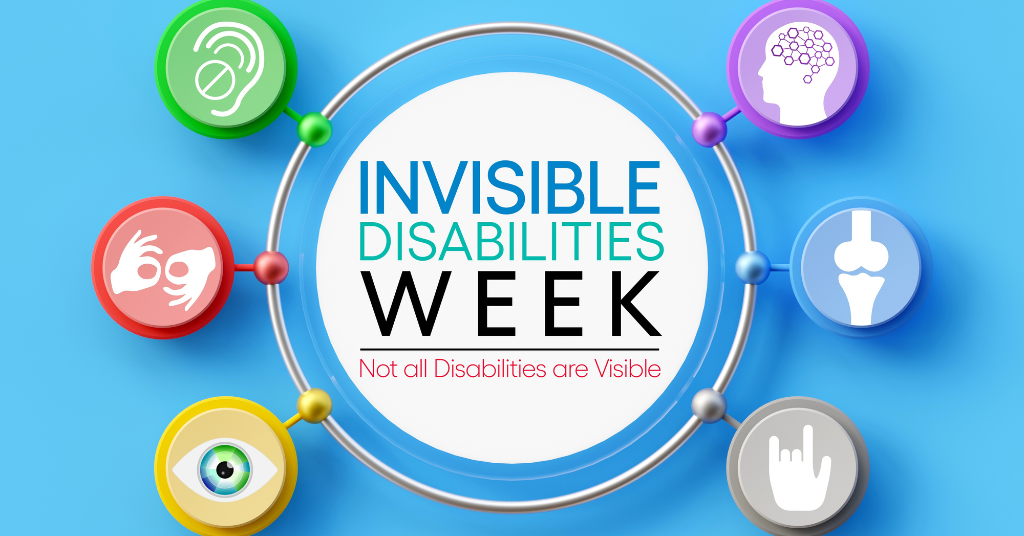
Adjusting to new sounds on my college campus
August 16, 2021
Deaf photographers around the world
August 20, 2021My experience with hearing loss in the “conversational range”

Conversational range hearing loss can cause a lot of confusion in spoken interactions. The average person tends to speak around 50-60 decibels (dB). If a person has a hearing loss with in this range, conversation with another person can be challenging to understand. Of course, this range can vary even more, depending on whether the person is a loud or soft speaker. Distance, direction, background sound, and the room layout/size can also have an impact on how sound is heard.
I have had a moderate hearing loss for several years, which is right in conversational range hearing loss. My range has been between 40-50 dB in the higher frequencies and 60 dB in the lower ones. Someone without a hearing loss might not understand what this means. To explain this, I can often hear women’s voices okay one-on-one, unless they are soft spoken. Deeper men’s voices can be harder to understand, unless they are loud spoken. This varies, depending on many factors, and masks being worn during COVID have certainly complicated the situation even more. Conversation can be anywhere within my range, which can make things challenging.
Common experiences with conversational-range hearing loss
Having conversational range hearing loss means I have experienced some common scenarios. It also led me to realize that my hearing aids would benefit me in these situations.
“It also led me to realize that my hearing aids would benefit me in these situations.”
Read more: The impact of mild to moderate hearing loss is bigger than you may think
Missed Interactions
Sometimes strangers will make random conversation with me. I tend to be in and out on what I understand.
I’ve often been in situations where I can understand one person but not another.
One place this happens is when I’m walking around outside with my partner. Often, people passing by are friendly and choose to make conversation. Sometimes I can hear one person fine, but not another. Therefore, I tend to favor conversation with the person I can hear. It is possible that the person I can’t hear thinks I am ignoring them, but this is just my way of dealing with the situation.
Sometimes a person will start talking and I hear what they say initially, but then further into the conversation, things start to sound more mumbled.
It is best to stop them and explain I’m not understanding. That means interrupting the person, which can be challenging sometimes.
I tend to know people are talking, but not always what they are saying.
There are times I have let my partner speak on my behalf, such as at a restaurant or store, just because I didn’t catch what was being said. I sort of feel like a third wheel in these cases, especially if it leads to a full-blown conversation.
Not hearing clearly
Sometimes I will hear a person, but not clearly.
For example, suppose my partner and I are camping, and he was to say: “Get your DEET on,” as in mosquito spray. It’s quite possible that I would hear it as: “Get your beat on,” like a rhythm. I then may start to jam around like I’m dancing to a song, but my partner is confused because I’m not putting the mosquito spray on. This exact scenario didn’t happen, but it is similar to many misunderstandings where I have mixed up words, which happens a lot. I may have used a “fun” example here, but there are many frustrating examples of this.
Sometimes I will miss what the person is saying altogether.
One time, a guy made a joke. I asked “What?” because I didn’t catch it. I ended up saying “what” three times because I still wasn’t hearing him. After the third time, I just nodded my head as if I understood. He said a little louder, “You still didn’t catch it, did you?” which I understood. My face turned red, but I nodded in agreement. And he then said, “There must be a three-time limit of saying the word ‘what’ and then you just nod and smile.” I was embarrassed by the situation, but I also definitely felt the truth of that.
Often, I hear just enough so that people don’t realize I am not getting full clarity.
Many times, I also don’t realize what I am missing. Looking back, I had a friend who would sometimes shout my name thinking I was ignoring their questions. I would shout their name back playing along, but neither of us realized what was going on.
Sometimes, people just talk and talk and talk and never even allow a pause long enough for me to mention that what they are saying sounds mumbled.
It’s clear to me that we are wasting our time, but usually the other person is so determined to get the words out that they never actually notice whether I am following along.
Read more: Learning to overcome poor communication habits caused by my hearing loss
Why I Started Wearing My Hearing Aids
While I used to be able to get away without my hearing aids (at least I thought I was), I knew that this couldn’t continue this anymore in spoken situations in which I’m trying to socialize. My hearing loss is progressive. Over time, it started to become too much of a guessing game of whether I’d be able to understand someone.
Having every conversation be a hit or miss on whether I will understand is exhausting. With my hearing aids, interacting in these situations as well as on the phone and listening to sound through my computer via Bluetooth, things seem to be pretty clear to me. It seemed so silly to keep fighting this battle of not wanting to use my hearing aids. I started to realize my life would be so much easier if I just accepted them.
Read more: How an inspirational quote put me on tract to accept my hearing loss
Taking Breaks
I wear my hearing aids more today than before, but there are still times when I like to take a break. This is true with all technology. My aids are helpful, but sometimes I need to disconnect.
When I find myself in situations where I cannot hear, it important to know how to respond. I tend to either tell the person that I am hard of hearing and did not catch what they said, or I will SimCom (talk and sign), so they have an idea of why I am not responding accurately. Sometimes people will have the patience to slow down and say things again, and sometimes they won’t. But this at least clears things up, so people don’t think I am being rude.
Sometimes I will go in the store and write things out instead of talking. When I experience listening fatigue or if there is a lot of background noise, this tends to be a nicer option.
Why It’s Important to Understand My Audiogram
People often get confused when I can hear some of what is being said but not other things. Often, it does not seem consistent due to being right in conversational range hearing loss and each person and setting being so varied. If I am chatting with my partner and people see us interacting just fine, it is not going to “click” when another person starts talking to us that I am not understanding them unless I tell them. I tell people “I’m sorry, I didn’t hear that” or “Can you please speak up?” but there are times where I have gotten accused of not paying attention or having selective hearing.
Being able to explain that I hear better in some frequencies than others helps clarify my hearing loss to a person who does not understand it. Because I could still hear a lot, I often didn’t realize what sounds I was missing. The more I understand how my own hearing loss works, the more I understand what sounds I am not hearing and can chat with people about it to get a clearer picture of sound myself. Understanding is important for self-advocacy.
Read more: What an audiogram says about your hearing loss
Acceptance of My Hearing Aids
I used to think not wearing my hearing aids in spoken settings made me feel free. I didn’t want this piece of technology in my ears and therefore avoided wearing them. But not wearing them caused me to avoid conversations and hide from the world. My fear rose when I wasn’t getting a clear picture of what people were saying. I still allowed myself to get by the best I could because I didn’t see hearing aids as an answer for a long time, due to sound sensitivity and adjustment issues. I noticed an upgrade in quality of sound when I switched to Phonak hearing aids, and I believe this made my adjustment progress possible.
Read more: How to adjust to hearing aids after not wearing them for years
Being in conversational range hearing loss, I never know who I will and will not hear. This is the very definition of conversational range hearing loss: not hearing enough and not deaf enough. Wearing my hearing aids today allows me to interact in spoken settings without having this fear. There are times I need additional accommodations to go along with the hearing aids, but wearing the hearing aids takes a lot of pressure off of me on straining to “try to hear.” I have noticed my social interactions improving because of this. Understanding my hearing loss and being prepared on how to respond helps me to advocate for myself in conversations where there isn’t clarity or when I may need a break.
Read more: New to hearing loss? 3 ways to be an advocate for your journey




